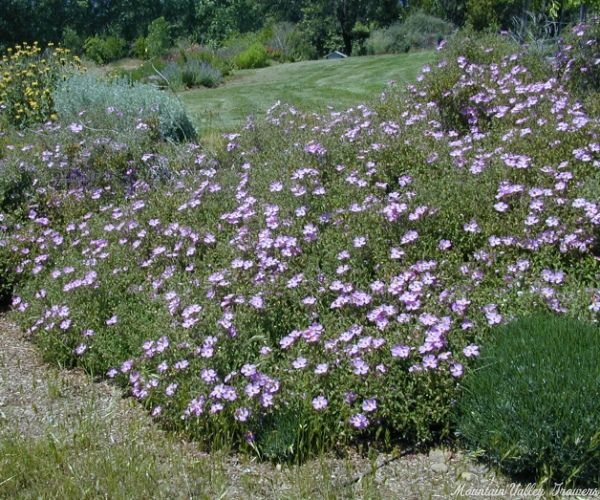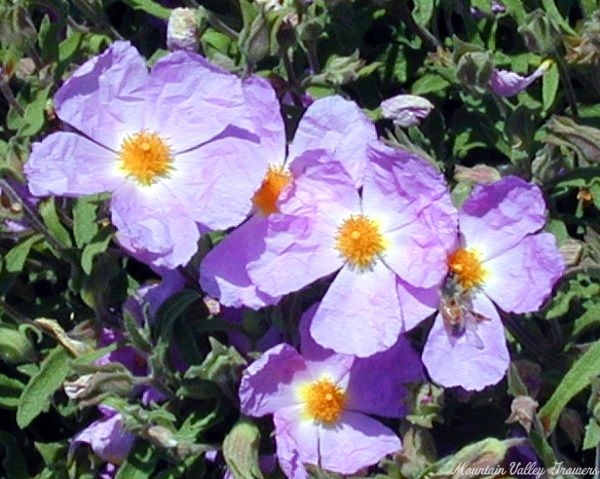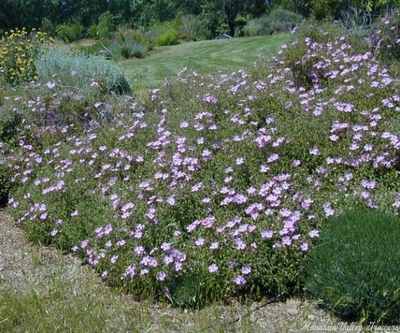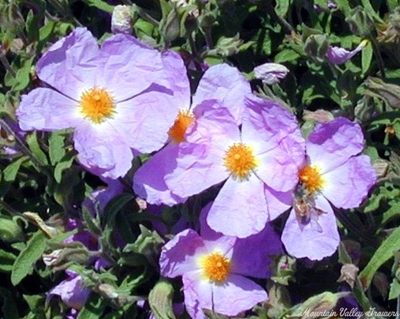Growing & using Pink Rockrose

This amazingly beautiful Pink Rockrose covers about a twenty foot by eight foot patch of ground. It was started many years ago from one three-inch pot.
“And they sat down to eat bread: and they lifted up their eyes and looked, and, behold, a company of Ishmaelites came from Gilead with their camels bearing spicery and balm and myrrh, going to carry it down to Egypt.” Genesis 37:25.
It is unlikely that it was the true myrrh that the Ishmaelites were bearing. Myrrh is a tropical tree and not in keeping with the other goods they were bringing. It was probably another highly prized resin called ladanum (also sometimes referred to a labdanum). This material comes from the sticky fragrant leaves of the Rockrose. Getting the aromatic resin from the plant was not an easy task. Leather thongs, or strips, were used to whip the bush and then the sticky sap was gleaned from these. It might even have been combed from goats’ beards. This difficulty in obtaining the incense only added to its value. Today, modern methods allow use of this product for flavoring baked goods, gum and candy and for scenting perfumes and soaps.

Rockroses are wonderful beneficial insect plants. The pollen filled centers are especially loved by bees. Rockroses flower for about six weeks in spring. As the day ends the open flower floats to the ground. The next morning a new one will unfold to take its place.
While extremely drought tolerant, Rockroses benefit from water in the summer in a dry climate. This encourages the most flowers and expansion of the shrub.
Rockroses never need pruning but can be pruned at anytime after flowering for shape. They should not be cut way back. Old wood may not produce new growth. Rockroses can increase their diameter by laying stems in the soil and rooting at that point.
Pink Rockrose will not survive winters below 10 degrees or imperfect drainage. But, where it does survive, it lives with a flourish.


